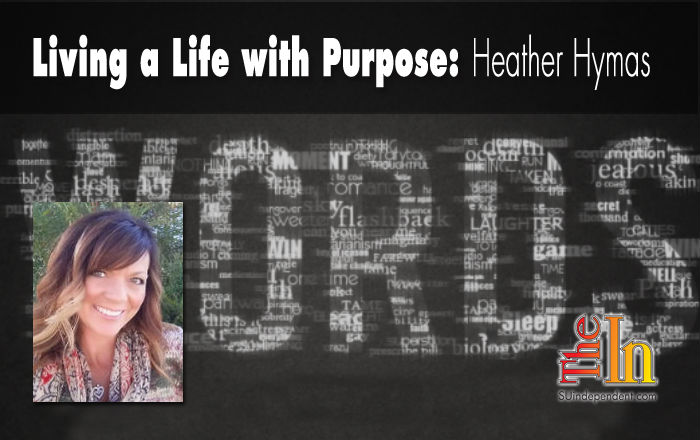
Written by Heather Hymas
“Words are singularly the most powerful force available to humanity. We can choose to use this force constructively with words of encouragement, or destructively using words of despair. Words have energy and power with the ability to help, to heal, to hinder, to hurt, to harm, to humiliate and to humble.” ~Yehuda Berg
Words can nourish, uplift, and inspire us, or they can beat, batter, and break our spirit. Just ask any adult who was raised by a critical or verbally abusive parent. The consequences of hurtful words can be devastating and long-lasting. A punch in the face or even a broken bone heals, but damaging or degrading words can stay with a person forever.
As a teacher constantly working around children, I am hyper sensitive to this idea, but I have realized lately I don’t always take this sensitivity with me out into the world. I don’t always think about the consequences of my words. Sarcasm or complaining often rolls off my tongue without a forethought. I often find myself justifying saying hurtful things all in the name of a good laugh. Is it funny? Usually, ha ha! If you knew me I’m sure you would think I am pretty hilarious, but at what cost? Laughter is the best medicine, and can be a great way to diffuse a stressful or tense situation, but if it ends up damaging someone or myself in the process, the humor sure fades quickly.
Humor, being able to see the lighter side of things, and/or the ability to make fun of ourselves are certainly all great qualities. So, how do we know when we’ve crossed the line? How do we know when our “making fun” becomes hurtful or damaging? I believe it all comes back to living a life of purpose. If my purpose is to uplift, inspire, and encourage people, then making a joke at their expense, or using sarcasm rather than respectful communication is not fulfilling my purpose. If my purpose here on this planet is to love people, than my words need to be loving also.
They say that communication is 90 percent non-verbal, but I believe what we let come out of our mouth is much more powerful. Yes, it is true that gestures, tone of voice, and mannerisms speak volumes. I am not arguing that how you say something isn’t as important as what you say, but what you say really is the most important.
Tell a person ten good things about his/herself, and then add in one negative comment. Most likely all they will remember is the negative comment. I read somewhere it takes seven positives to undo one negative comment. If this is true, then we should all be going around spewing positive comments like sprinkles at a donut shop.
As human beings we tend to hold on to the ugly stuff. I may have done 500 great things today, but the one mistake I made is often the only thing I give myself credit for. Communication is the same way. Lets change those odds. I believe the way to do this is by becoming more aware of what we are saying and why. Why don’t we share more of the good stuff? If you like someone’s shirt do you tell them they look great today? If you notice someone did something helpful or kind do you point that out to them and say thank you? My guess is not always. What if we all made a point everyday to say something nice to everyone we come in contact with? What effect do you think that would have on your environment? What effect would it have on you?
Try this experiment. Today, make a point to say something nice to every single person you come in contact with. Tell the guy at the drive-through he is doing a great job. Thank your cashier at the grocery store. Call up a family member just to let them know you were thinking about them. Thank the people you work with for doing their jobs, and be sincere. Tell someone she is beautiful. Tell someone they made a great meal. Make a point to consciously think about what comes out of your mouth and let it be positive. See how this alters not only your ability to feel amazing, but the ability of everyone around you.
Can living a life with purpose be done with both humor and grace? The answer is a resounding yes! Laugh, make jokes, inspire, and encourage, but most of all make sure your communication matches your purpose.
Heather Hymas has been a teacher in one form or another for the past 14 years. She has taught fourth grade, intermediate school, and college English, both at Dixie State University and Southern Utah University. She currently works as a teacher in a residential treatment center for troubled youth. She has a B.S. in elementary education, a master’s degree in education, and is currently working on her doctorate. She lives in St. George with her teenage daughter.




